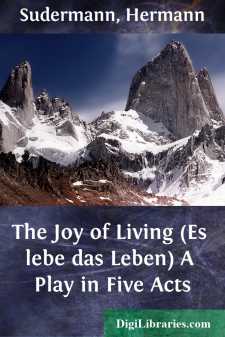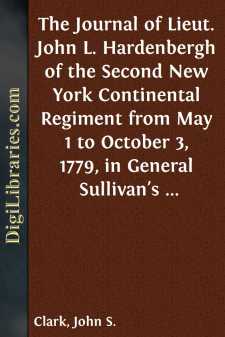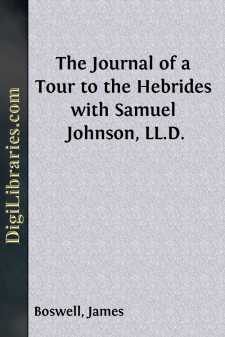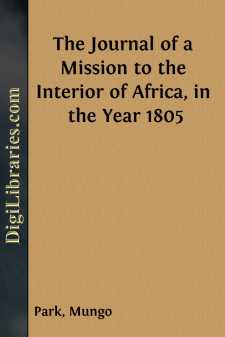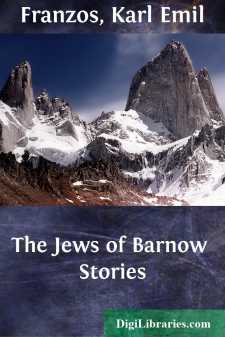Fiction
- Action & Adventure 180
- Biographical 15
- Christian 59
- Classics
- Coming of Age 5
- Contemporary Women 3
- Erotica 8
- Espionage/Intrigue 12
- Fairy Tales, Folklore & Mythology 236
- Family Life 169
- Fantasy 117
- Gay 1
- General 596
- Ghost 32
- Historical 808
- Horror 43
- Humorous 160
- Jewish 25
- Legal 4
- Medical 22
- Mystery & Detective 315
- Political 49
- Psychological 41
- Religious 64
- Romance 159
- Sagas 11
- Science Fiction 730
- Sea Stories 113
- Short Stories (single author) 537
- Sports 10
- Suspense 1
- Technological 8
- Thrillers 2
- Urban Life 31
- Visionary & Metaphysical 1
- War & Military 173
- Westerns 199
Classics Books
Sort by:
CHAPTER I. The neighbors and our family began to laugh at me about as far back as I can remember, and I think that the first serious remark my father ever addressed to me was, "Bill, you are too lazy to amount to anything in this life, so I reckon we'll have to make a school teacher of you." I don't know why he should have called me lazy; I suppose it must have been on account of my...
more...
ACT I A drawing-room in the Empire style in Count Kellinghausen's house. In front, on the left, a fireplace; to the left, in the background, a door to the inner apartments; to the right, back, a door into the front passage; in the foreground, on the right, a window. In the centre of back wall a wide opening between two columns, partly closed by an old Gobelins tapestry. On the right a sofa, table...
more...
by:
John S. Clark
BIOGRAPHICAL. John Leonard Hardenbergh, the author of the following Journal, was a native of Rosendale, Ulster County, in the Province of New York, born in the year 1748. He was the son of Leonard and Rachel Hardenbergh, and the youngest of seven children. The family name is one of the oldest in the State, and is prominent both in its colonial and revolutionary annals. As early as 1644, Arnoldus van...
more...
by:
Upton Sinclair
PART I WRITING A POEM The book! The book! This day, Saturday, the sixth day of April, 1901, I begin the book! I have never kept a journal—I have been too busy living; but to-day I begin a journal. I am so built that I can do but one thing at a time. Now that I have begun The Captive, I must be haunted with it all day; when I am not writing it I must be dreaming it, or restless because I am not....
more...
by:
James Boswell
My Dear Sir, In every narrative, whether historical or biographical, authenticity is of the utmost consequence. Of this I have ever been so firmly persuaded, that I inscribed a former work to that person who was the best judge of its truth. I need not tell you I mean General Paoli; who, after his great, though unsuccessful, efforts to preserve the liberties of his country, has found an honourable...
more...
by:
Mungo Park
The original documents relating to Mr. Mungo Park's last mission into Africa having been entrusted to the Directors of the African Institution by the Secretary of State for the Colonial Department, with liberty to publish them, in case they should deem it expedient; the Directors now avail themselves of this permission, by publishing the papers for the benefit of Mr. Park's family. These...
more...
On Taking One's Dessert First When we were children we used to "happen in" to the kitchen just before luncheon to see what the dessert was to be. This was because at the luncheon table we were not allowed to ask, yet it was advantageous to know, for since even our youthful capacity had its limits, we found it necessary to "save room," and the question, of course, was, how much...
more...
by:
Angela Brazil
The New School "Katrine!" said Gwethyn, in her most impressive manner, "have you noticed anything peculiar going on in this house the last two or three days?" "Why, no," replied Katrine abstractedly, taking a fresh squeeze of cobalt blue, and mixing it carefully with the rose madder and the yellow ochre already on her palette. "Nothing at all unusual. Gwethyn, be careful!...
more...
by:
Sinclair Lewis
CHAPTER I CAPTAIN LEW GOLDEN would have saved any foreign observer a great deal of trouble in studying America. He was an almost perfect type of the petty small-town middle-class lawyer. He lived in Panama, Pennsylvania. He had never been “captain” of anything except the Crescent Volunteer Fire Company, but he owned the title because he collected rents, wrote insurance, and meddled with lawsuits....
more...
TO THE AMERICAN EDITION. Although the high literary art which Franzos possesses (the finer quality of which has been preserved in this translation) is fully admitted by intelligent Jews, the subject-matter of his book itself, its raison d'etre, they have by no means relished. In a review of "The Jews of Barnow," published some months ago in a leading New York journal, it was asserted by...
more...



